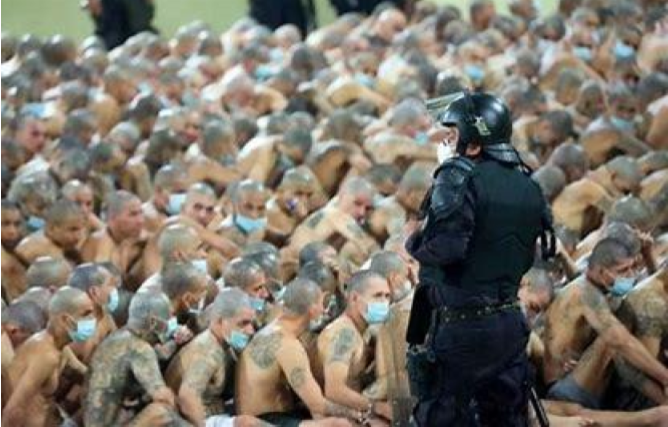In June of 2019, the new President of El Salvador Nayib Bukele, a young immigrant and outsider who went from local mayor to national representative, decided to take a stand against his country’s gangs. Five years later, many critics are vocal about human rights abuses, though other nations are looking at adopting these harsh policies.
To understand how we got here, Dr. Richard Clark, Professor of Criminology at John Carroll University recommended we look at the hard numbers.
From the mid-2000s and for the last 20 years, statistics from the Criminal Policy Research Institute, along with the El Salvadoran National Public Security Academy, showed that major violence between gangs was based inside El Salvador’s prisons. Also, this created violence outside of those prison walls, which the American prison system worsened with prisoners being deported to El Salvador – growing the largest gangs in the nation, MS 13 and Barrio 18.
This all culminated in several high-level executions, each of which saw one gang go after the leadership of another. Chaos ensued as lower-level crime skyrocketed.
In response, Bukele unveiled his solution to the nation’s crime issue Las Chiches “mega-prison”. This facility, roughly holding 40,000 suspects and convicts, is four times more populous than University Heights, with each prisoner having only 0.6 meters (about two feet) of space to be confined to. This directly contradicts the recommendations of the Criminal Court of Europe for a minimum of 4 meters of living space per prisoner. Activists claim this has been a cruel experiment for “warehousing” people.
When discussing the purpose of this new prison and the policies that are filling it, Dr. Clark stated “The El Salvadoran prison system acts like a double-edged sword… on one end, it provides safety in a nation whose citizens did not feel safe.”
As of this February, foreign news crews were allowed to take an unprecedented look at the state of the El Salvadoran prison system, that has made the nation nominally safer. These crews were shocked at the rigid and dehumanizing conditions that can be seen here.
Overall concerned with this project, Dr. Clark conceded that “when your child goes missing into the prison system, with no warning, that is a horrible loss and an abuse” since many of those in the Las Chichles prison are there without a trial or public notice.
As this experiment unfolds more into the final year of Bukele’s first term as President, others abroad, especially the Peruvian government, are interested in adopting the system. Fresh off of gang violence that killed a presidential candidate in 2023, Eduardo Arana, Minister of Justice and Human Rights, recommended that his country “consider implementing the El Salvadoran Model” as violence in provinces such as Trujillo and Pataz creates long lockdowns and fears over escalation. Though it is unlikely Peru has the funding to implement the system as they are a more populous nation, the concern is still present as potentially, the prison system of El Salvador, with its moral and physical costs, becomes more widely accepted in the global community.



